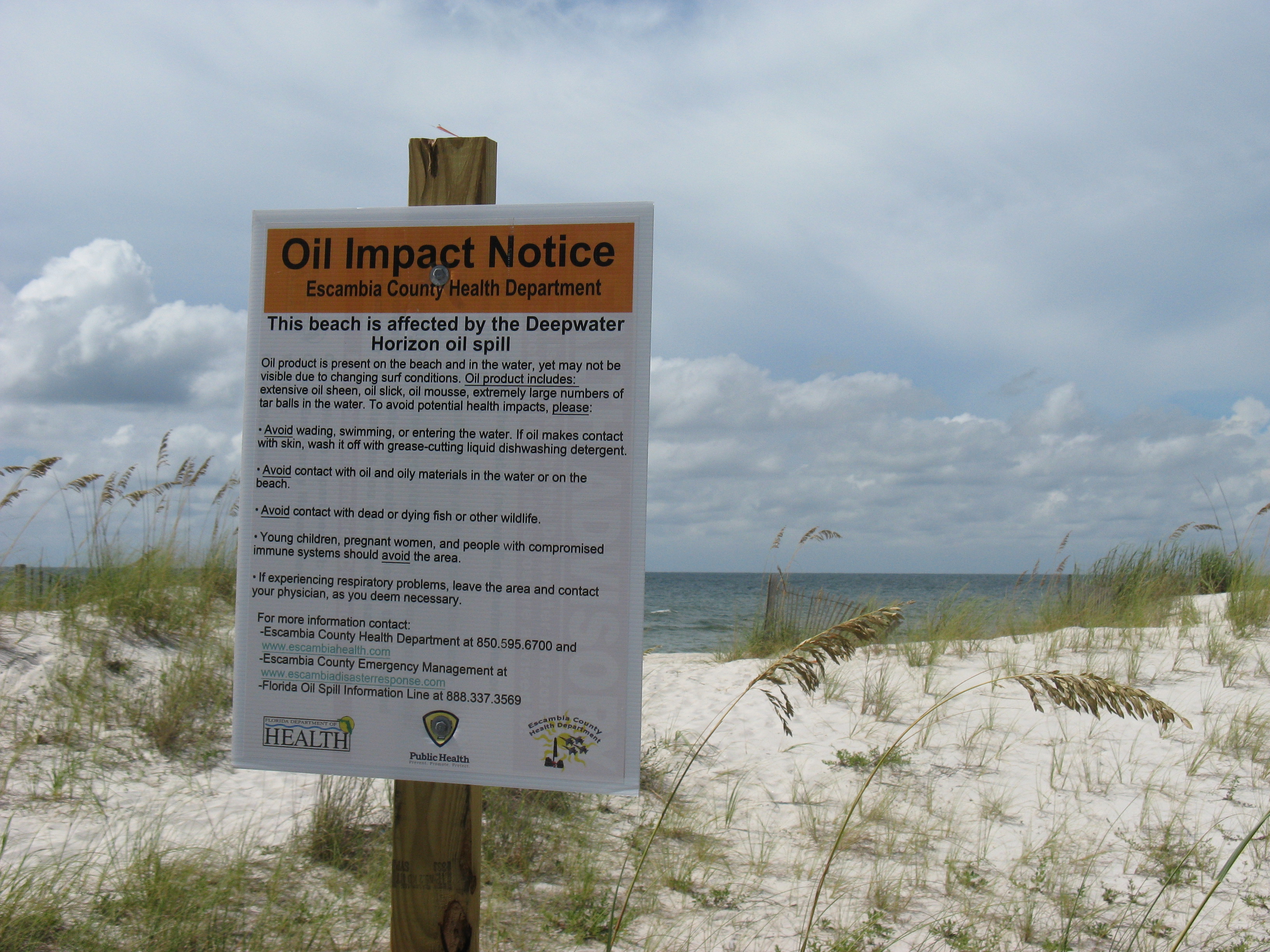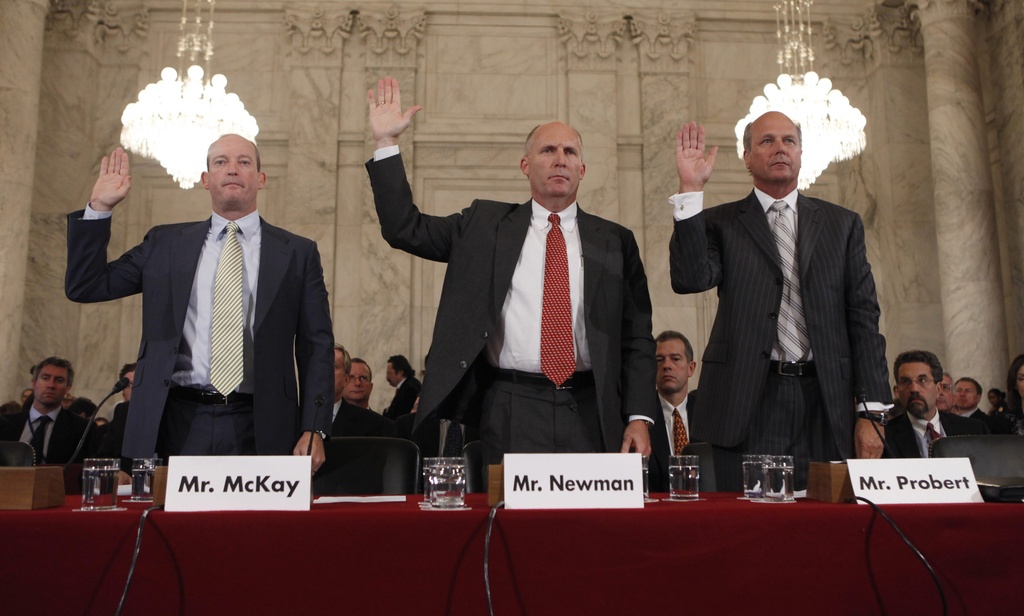Legal deal on massive oil spill in sight

The United States has reached a financial deal with Transocean, the Swiss-based owner of a drilling rig that sank after an explosion killed 11 workers, causing the 2010 oil spill in the Gulf of Mexico.
The proposed $1.4 billion (SFr1.3 billion) settlement resolves the US justice department’s civil and criminal probes of Transocean’s role in the Deepwater Horizon rig disaster.
It requires the Switzerland-based company to pay $1 billion in civil penalties and $400 million in criminal penalties and plead guilty to a misdemeanor charge of violating the Clean Water Act, according to a court filing in Louisiana.
The agreement, which is subject to a federal judge’s approval, also calls for Transocean to implement a series of operational safety and emergency response improvements on its rigs.
”This resolution of criminal allegations and civil claims against Transocean brings us one significant step closer to justice for the human, environmental and economic devastation wrought by the Deepwater Horizon disaster,” Attorney General Eric Holder said in a statement.
Transocean said it believes the settlement is in the best interest of its shareholders and employees and eliminates “much of the uncertainty associated with the accident.”
“This is a positive step forward, but it is also a time to reflect on the 11 men who lost their lives aboard the Deepwater Horizon,” a statement said.
The five million barrels of oil spewed during the incident were the worst oil spill disaster in US history.
British Petroleum
British Petroleum (BP), which leased the rig from Transocean, has already agreed to pay a record $4.5 billion in penalties and plead guilty to manslaughter and other criminal charges related to the spill.
Transocean previously announced it had reserved $2 billion for paying claims related to the Deepwater Horizon disaster.
David Uhlmann, a University of Michigan law professor and former chief of the justice department’s environmental crimes section, said the $1 billion civil penalty is a record amount for an environmental case. But he expressed surprise that Transocean is not paying more in criminal penalties or facing manslaughter charges of its own.
A series of government investigations has spread out the blame for the nation’s worst offshore oil spill among BP, Transocean and other partners on the project, including cementing contractor Halliburton.
Halliburton has not settled with the justice department, BP or Transocean.
Swiss hub
In 2008 Transocean, one of the world leaders in offshore drilling, moved its headquarters to Switzerland from the Cayman Islands. It established offices in Zug and Geneva, apparently to take advantage of lower taxes in some jurisdictions.
It is also represented in about 20 other countries and has nearly 19,000 employees worldwide.
Under the Swiss tax system, the 26 cantonal authorities have widespread autonomy, offering preferential fiscal treatment for companies.
This has helped attract an increasing number of global companies in recent years, notably making Switzerland a hub for the commodities trading sector.
The company was drilling in water about 2,000 metres deep off the coast of Louisiana.
The rig exploded on April 20 and sank two days later. The safety valves on the oil well failed to function and crude oil began to leak into the sea.
Attempts to seal the well with cement and a steel dome failed on May 20. BP positioned a funnel over the well to suck up parts of the crude oil. It also began drilling a relief well.
In July BP announced it had stopped the leak. Nearly three weeks later attempts started to seal the well permanently.
The Deepwater Horizon rig had been under contract to BP since 2007.
(With input from Rita Emch)

In compliance with the JTI standards
More: SWI swissinfo.ch certified by the Journalism Trust Initiative











You can find an overview of ongoing debates with our journalists here . Please join us!
If you want to start a conversation about a topic raised in this article or want to report factual errors, email us at english@swissinfo.ch.